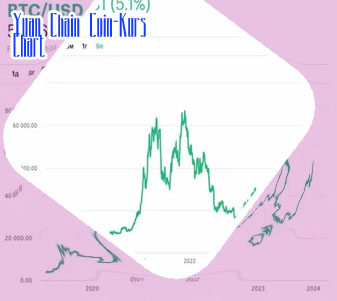
Bitcoin offizielles zahlungsmittel japan
Bitcoin wird immer beliebter als offizielles Zahlungsmittel in Japan. Die Kryptowährung hat in den letzten Jahren an Bedeutung gewonnen und wird von immer mehr Unternehmen und Verbrauchern akzeptiert. In diesem Artikel werden vier informative Ressourcen vorgestellt, die dabei helfen können, mehr über Bitcoins Rolle als offizielles Zahlungsmittel in Japan zu erfahren.
Die Bedeutung von Bitcoin als offizielles Zahlungsmittel in Japan

Bitcoin has been gaining recognition as an official payment method in Japan, and its significance extends beyond the borders of the country. Germany, known for its advanced economy and technological innovation, has also been closely following the developments surrounding Bitcoin.
As the largest economy in Europe, Germany plays a crucial role in shaping the future of digital currencies. The acceptance of Bitcoin as a legal tender in Japan has sparked discussions in Germany about the potential benefits and challenges of adopting Bitcoin as an official payment method. While some experts argue that Bitcoin's decentralized nature could disrupt the traditional financial system, others believe that it could offer a more efficient and secure way of conducting transactions.
For businesses in Germany, understanding the implications of Bitcoin as an official payment method in Japan is essential. With the growing popularity of cryptocurrencies, businesses need to stay informed about the latest trends and regulations to remain competitive in the global market. Furthermore, consumers in Germany who are interested in using Bitcoin for transactions can benefit from a better understanding of its legal status and potential risks.
In conclusion, the topic of Bitcoin as an official payment method in Japan is important and necessary for businesses and consumers in Germany who want to stay informed about the evolving landscape of digital currencies. By staying informed and adapting to the changing trends, Germany can position itself as a leader in the
Wie japanische Unternehmen Bitcoin als Zahlungsmittel integrieren
In Germany, the integration of Bitcoin as a payment method by Japanese companies has been a topic of interest among businesses and consumers alike. The adoption of Bitcoin in Japan has paved the way for other countries, including Germany, to explore the potential benefits of incorporating this digital currency into their payment systems.
One way in which Japanese companies have integrated Bitcoin as a payment method is by partnering with local cryptocurrency exchanges to facilitate transactions. By collaborating with these exchanges, businesses are able to accept Bitcoin as a form of payment, providing customers with an alternative payment option that is secure and efficient.
Furthermore, Japanese companies have also begun to offer Bitcoin payment options through mobile apps and online platforms. This allows customers to easily make purchases using Bitcoin, without the need for physical currency or credit cards.
Another way in which Japanese companies have embraced Bitcoin is by investing in blockchain technology. By leveraging the power of blockchain, businesses are able to streamline their payment processes, reduce transaction costs, and enhance security.
Overall, the integration of Bitcoin as a payment method by Japanese companies serves as a testament to the growing acceptance and adoption of cryptocurrencies in the global market. As Germany continues to explore the potential of Bitcoin and other digital currencies, it will be interesting to see how businesses in the region will incorporate these innovative payment methods into their operations
Die rechtlichen Rahmenbedingungen für Bitcoin als Zahlungsmittel in Japan
Bitcoin has gained significant popularity in Germany as a digital payment method, prompting the need to understand the legal framework surrounding its use in the country. The regulatory landscape for Bitcoin as a payment instrument in Germany is characterized by a mix of clarity and ambiguity, creating both opportunities and challenges for users and businesses alike.
-
Legal Status: Bitcoin is not considered legal tender in Germany, meaning that it is not recognized as an official currency by the government. However, the German Federal Financial Supervisory Authority (BaFin) has classified Bitcoin as a unit of account, making it subject to regulatory oversight.
-
Taxation: The tax treatment of Bitcoin transactions in Germany is determined by the Federal Ministry of Finance, which considers Bitcoin as a form of private money. As such, capital gains derived from Bitcoin trading are subject to taxation, similar to other investment assets.
-
Anti-Money Laundering Regulations: In an effort to combat illicit activities such as money laundering and terrorism financing, Germany has implemented stringent anti-money laundering regulations that apply to Bitcoin exchanges and other virtual currency service providers. These regulations require such entities to conduct customer due diligence and report suspicious transactions to authorities.
-
Consumer Protection: Despite the decentralized nature of Bitcoin, consumers in Germany are protected by the country's consumer rights laws.
Die Zukunft von Bitcoin als offizielles Zahlungsmittel in Japan
As Bitcoin continues to gain traction as a legitimate form of currency, Japan has emerged as a leader in embracing this digital asset for everyday transactions. With its forward-thinking approach to technology and finance, Japan has paved the way for Bitcoin to become an official payment method in the country. This development has sparked interest and debate in Germany, as many wonder about the future of Bitcoin as a mainstream currency in their own country.
-
Regulatory Environment: Japan's proactive stance on regulating Bitcoin has provided a clear framework for its use as a payment method. This has given businesses and consumers confidence in using Bitcoin for transactions.
-
Consumer Adoption: The increasing acceptance of Bitcoin by retailers and businesses in Japan has led to a growing number of consumers using the cryptocurrency for everyday purchases. This trend could potentially influence consumer behavior in Germany as well.
-
Technology Integration: Japan's innovative approach to integrating Bitcoin into existing payment systems has set a precedent for other countries to follow. This seamless integration has made it easier for businesses and consumers to use Bitcoin in their daily lives.
-
Economic Impact: The widespread acceptance of Bitcoin in Japan has had a positive impact on the economy, creating new opportunities for businesses and investors. This economic growth could serve as a model for Germany to consider when evaluating Bitcoin as a payment method